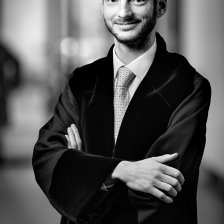Research on Cardiomyopathy & Arrhythmia in both locations of Amsterdam UMC is highly complementary and synergistic. Presently, the main pathologies that are addressed include diastolic heart failure, inherited and congenital (non-ischemic) cardiomyopathies (hypertrophic CM, dilated CM etc), ventricular arrhythmias associated with sudden cardiac death and atrial fibrillation, which are organized within four themes.
Unique research expertise involve: sarcomere and cardiomyocyte physiology, Drosophila atrial fibrillation model, clinical and experimental electrophysiology, (cardio)genetics, iPSC-CM (inducible pluripotent stem cells-derived cardiomyocytes) technology, bioinformatics, and developmental biology.
Infographics on research performed within the Heart Failure & Arrhythmias research program:
Aim
We aim to further increase the quality of our research and training activities to become a Top Heart Failure and Arrhythmia Research group within Europe. We will intensify collaboration between participating departments and jointly coordinate our activities on training and recruitment of talented researchers.
We aim to expand our expertise with bioinformatics, high-resolution imaging, human iPSC-CM and engineered 3D cardiac muscle tissue. Joint investments in infrastructure, technologies and expertise (technical support) are needed to maintain a unique niche in the cardiac research field.
Program Leaders
Young ACS
Research themes
Diastolic heart failure
During the last two decades it has become evident that more than 50 percent of all heart failure patients suffer of impaired diastolic function with preserved left ventricular ejection fraction (HFpEF).
Despite modern heart failure therapy, prognosis of HFpEF did not improve over the last decades. To unravel pathomechanisms underlying diastolic dysfunction, In vivo clinical studies are combined with cellular studies in human cardiac preparations.
In addition, several large and small animal models are used to unravel the pathomechanisms underlying impaired diastolic function.
Cardiomyopathies
To unravel the complex pathophysiology of inherited and congenital cardiomyopathies, a tight collaboration is present between the different actors involved in cardiomyopathy, including (clinical) geneticists, cardiologists, pathologists, cell biologists and physiologists.
Expertise is bundled within the different research fields and thereby links clinical imaging and genetic studies with mechanistic insights obtained from molecular, histological and functional studies in human cardiac muscle samples, cell systems and animal models.
Established models include single cardiomyocytes systems and mouse and Drosophila, which enable mechanistic studies and drug screening. The Parelsnoer institute, CONCOR, provides access to patient data, DNA and cardiac samples on congenital heart disease (including pulmonary hypertension and Marfan syndrome).
Heart failure and arrhythmias: a unique niche in the cardiac research field
Arrhythmias
Research within this theme aims to identify genetic risk factors and cellular pathomechanisms underlying cardiac disorders associated with increased risk of sudden cardiac death.
The focus is placed on genotype-phenotype studies and arrhythmia mechanisms in different cardiac pathologies, among which hypertrophic cardiomyopathy and arrhythmogenic cardiomyopathy, primary arrhythmogenic syndromes (Long QT syndrome, cardiac conduction disease and Brugada syndrome) and myocardial infarction/ischemia.
The research includes discovery of genetic factors which cause or modify cardiac disease, investigation of underlying (pro)arrhythmic mechanisms, and identification of novel targets for diagnosis, risk stratification and therapy, including the interaction between structure and function.
Functional studies are performed in experimental model systems (transgenic mice, human iPSC-CM) on newly-identified genes and pathways, providing insight into the pathophysiological mechanism underlying the disease.
The theme links up with other Research Programs through metabolic control of electrophysiology, calcium handling, structure-function relation and pharmacology.
Atrial fibrillation
Atrial Fibrillation (AF) is the most common age-related cardiac arrhythmia causing increased morbidity and mortality. AF treatment is difficult due to its persistent nature caused by progressive structural and functional changes.
Studies focus on normalization of protein homeostasis to reverse structural remodeling and restore cardiomyocyte function in AF. Genetic and pharmacological manipulations are used in tachypaced atrial cardiomyocytes and Drosophila and results are validated in atrial tissue of AF patients.
In addition to basic research, clinical programs including studies into the role of the autonomic nervous system, thoracoscopic ablation, hearth rhythm devices such as the subcutaneous ICD (Implantable Cardioverter Defibrillator), wireless pacemakers and drug therapies, and evaluation of neurological consequences are performed in AF patients giving rise to an entire translational research line.
PI's and ongoing research lines
The following PI's are member of the Heart Failure & Arrhythmias Research Program:
| Principal Investigator | Location | Department |
|---|---|---|
| Connie Bezzina (program leader) | AMC | Experimental Cardiology |
| Bianca Brundel (program leader) | VUmc | Physiology |
| Gerard Boink | AMC | Medical Biology |
| Bas Boukens | AMC | Medical Biology & Experimental Cardiology |
| Vincent Christoffels | AMC | Medical Biology |
| Marco Götte/Cor Allaart | VUmc | Cardiology |
| Louis Handoko | VUmc | Cardiology |
| Victor van Hinsbergh/Pieter Koolwijk | VUmc | Physiology |
| Barbara Mulder/Berto Bouma | AMC | Cardiology / Heart Center |
| Yigal Pinto | AMC | Experimental Cardiology |
| Carol Ann Remme | AMC | Experimental Cardiology |
| Dop Simonides | VUmc | Physiology |
| Jolanda van der Velden | VUmc | Physiology |
| Deli Zhang | VUmc | Physiology |
PI’s and staff members of the Heart Failure & Arrhythmias Research program were invited to give a short pitch about their research, funding and future plans for the coming years. This resulted in the figure presented below and an overview of missions along with slides for individual research lines (see Downloads). If your research is missing, please send an email to acs@amsterdamumc.nl with the ongoing research template (see Downloads).
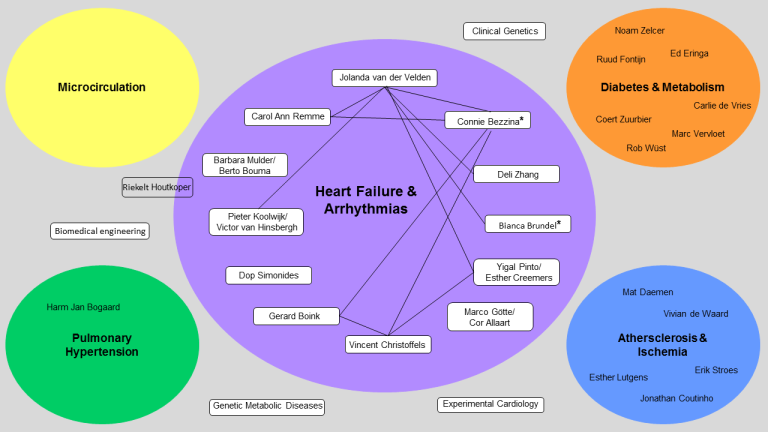
Downloads
Program members
-
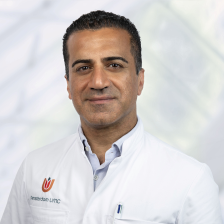 A.S. AminPI DR.
A.S. AminPI DR. -
Abby Geerlings
-
Abdelhak El BouzianiDRS.
-
Albert van RossumPI PROF.DR.
-
Albert WiegmanPI DR.
-
 Alex PostmaDR.
Alex PostmaDR. -
Alexa VermeerDR.
-
Alexander VonkPI DR.
-
Alexandra van DisselBSc MD MSc
-
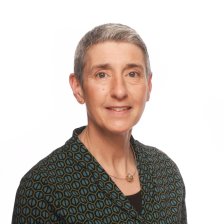 Alice MullerDR.IR.
Alice MullerDR.IR. -
 Alicia UijlPI
Alicia UijlPI -
Allard van der WalDR.
-
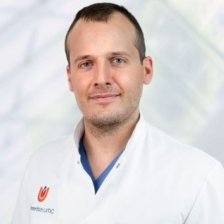 Andras Durko
Andras Durko -
Anita Tuip - de Boer
-
 Anke TijsenPhD
Anke TijsenPhD -
Anne Floor Quast
-
Anne-Lotte van der LingenMSC.
-
 Antonius DriessenMD PhD
Antonius DriessenMD PhD -
 Arie VerkerkDR.IR.
Arie VerkerkDR.IR. -
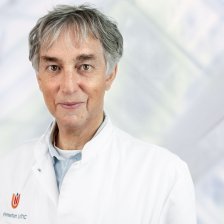 Arthur WildePI PROF.DR.
Arthur WildePI PROF.DR. -
Barbara MulderPROF.DR.
-
Bart StraverDR.
-
 Bas BoukensPI DR.
Bas BoukensPI DR. -
Bastianus de MolPI PROF.DR.MR.
-
Ben van Nieuwenhuizen
-
Bente Verbruggen
-
Bert-Jan van den BornPI PROF.DR.
-
Berto BoumaPI DR.
-
 Bettine van Willigen
Bettine van Willigen -
 Bianca BrundelPI PROF.DR.
Bianca BrundelPI PROF.DR. -
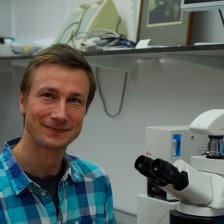 Bjarke JensenMSc PhD
Bjarke JensenMSc PhD -
 Bram CoolenMEng PhD
Bram CoolenMEng PhD -
 Bram HulstMD
Bram HulstMD -
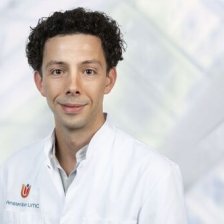 C van der WerfPI DR.
C van der WerfPI DR. -
 Carol Ann RemmePI PhD
Carol Ann RemmePI PhD -
Carolina Morgado Bastiao Guedes Bras
-
 Caroline de VriesPI PROF.DR.
Caroline de VriesPI PROF.DR. -
 Caroline PhamBSc MSc
Caroline PhamBSc MSc -
Chantal ConrathDR.
-
Chantal van Opbergen
-
Charlotte Zwager
-
Chris Doornebal
-
 Christian Krijger JuárezPhD
Christian Krijger JuárezPhD -
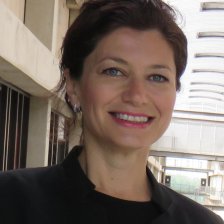 Connie BezzinaPI PROF.DR.
Connie BezzinaPI PROF.DR. -
Cornelis AllaartPI PROF.DR.
-
Cornelis van KuijkPI PROF.DR.
-
Corrie de Gier - de Vries
-
Danielle Robbers - VisserDR.
-
Dave Koolbergen
-
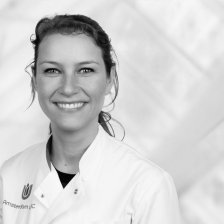 Debbie Kalkman
Debbie Kalkman -
 Denise VeeloPI PROF.
Denise VeeloPI PROF. -
Devin Verbueken
-
Diane BakkerBSc
-
 Diederik KusterPI DR.
Diederik KusterPI DR. -
Doris Skoric - Milosavljevic
-
Dylan de Vries
-
Edgar Nollet
-
Edwin Poel
-
 Elisabeth LodderPI DR.
Elisabeth LodderPI DR. -
Elke BosDR.
-
 Esther CreemersPI PhD
Esther CreemersPI PhD -
Eva MeulendijksBSc
-
Evert Karregat
-
 Fabian KooijDR.
Fabian KooijDR. -
 Fatimah Al Darwish
Fatimah Al Darwish -
Femke de Jong
-
Fleur TjongDR.
-
 Floriaan SchmidtPI
Floriaan SchmidtPI -
Frank van Someren GreveDR.
-
 Frederik de LangePI DR.
Frederik de LangePI DR. -
Freyja van Lint
-
 Geert BoinkPI PhD
Geert BoinkPI PhD -
 Gustav StrijkersPI DR.IR.
Gustav StrijkersPI DR.IR. -
Han TanPI DR.
-
Hans AvisDR.
-
Hans WartenbergPhD
-
 Hatem Al FarraMD MSc
Hatem Al FarraMD MSc -
Henk van WeertDR.
-
Henning HermannsDR.
-
Hidde Bleijendaal
-
 Hugo Klarenberg
Hugo Klarenberg -
Ilse Altenburg
-
Ilse Luirink
-
 Ilse Meijer
Ilse Meijer -
Ineke Nugteren
-
Ingeborg van der Made
-
 Isa Mast
Isa Mast -
Isabella MengarelliPhD
-
 Ivana IsgumPI
Ivana IsgumPI -
Jaeike FaberDR.
-
Jaël Copier
-
Jan LeerinkDR. DR.
-
 Jasper Kampman
Jasper Kampman -
Jasper SelderDRS.IR.
-
Jelle de Jong
-
 Jelle HimmelreichMSc
Jelle HimmelreichMSc -
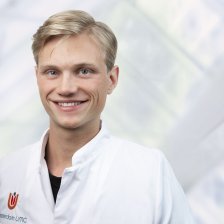 Jesse Geels
Jesse Geels -
 Jianan Wang
Jianan Wang -
Jim VehmeijerDR. DR.
-
 Jimmy SchenkPI
Jimmy SchenkPI -
Joelle Daems
-
Joelle Daems
-
Johannes NiessenPI PROF.DR.
-
Johannes TijssenPROF.DR.
-
 Jolanda van der VeldenPI PROF.DR.
Jolanda van der VeldenPI PROF.DR. -
Jolien de Veld
-
Jolien Neefs
-
 Joline BeulensPI PROF.DR.IR.
Joline BeulensPI PROF.DR.IR. -
Joost van SchuppenDRS.
-
 Jorien TreurPI
Jorien TreurPI -
Jorinde PoldermanMD
-
Joris de GrootPI PROF.DR.
-
Jouke BokmaDR.
-
Karel Breeman
-
Karel KochMD PhD
-
 Karel van Duijvenboden
Karel van Duijvenboden -
Karin de BoerDRS.
-
Karis Karismananda
-
Koen Scholman
-
 Koos ZwindermanPI PROF.DR.
Koos ZwindermanPI PROF.DR. -
Krystien Lieve
-
Laura Duineveld
-
Leonoor Wijdeveld
-
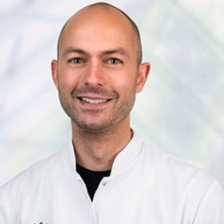 Lieuwe BosPI PhD
Lieuwe BosPI PhD -
Lindy Alles
-
Lonneke SmedingDR.
-
Louis HandokoPI DR.
-
Lourens RobbersDR.
-
Lucas BoersmaPI DR.
-
maarten GroeninkDR.
-
Machteld Boonstra
-
Marc Terpstra
-
Marco GotteDR.
-
 Margriet Bogerd
Margriet Bogerd -
Marie Gunthel
-
 Marieke Bak
Marieke Bak -
 Marieke BlomPI PhD
Marieke BlomPI PhD -
Marieke VeldkampDR.
-
Marije Wijnberge
-
Marit van Barreveld
-
Marjet Oppelaar
-
Mark HofmanDR.
-
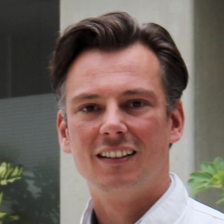 Mark SchuuringDR.
Mark SchuuringDR. -
 Markus HollmannPI PROF.DR.DR.
Markus HollmannPI PROF.DR.DR. -
Marthe Becker
-
Marthe Mansour
-
Martijn Klaver
-
Martijn van der Ree
-
 Mat DaemenPI PROF.DR.
Mat DaemenPI PROF.DR. -
Maurice van den HoffPI DR.
-
Michiel HelmesDR.
-
Michiel Hulleman
-
Michiel KemmeDR.
-
Michiel WinterPI DR.
-
 Milan RidderikhofDR.
Milan RidderikhofDR. -
Mischa KlerkBSc
-
Mitchel Molenaar
-
Monika GladkaPI
-
Myrthe van der Heide
-
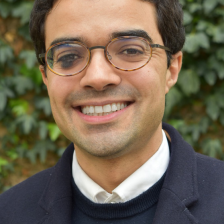 Najim LahrouchiMD
Najim LahrouchiMD -
Nerissa Denswil
-
Nick BijsterveldDR.
-
Nico BlomPROF.DR.
-
Nurul QalbyMD
-
Nynke HofmanDR.
-
Olga Stam
-
Onno de BoerDR.
-
Otto KampDR.
-
P. KerkhofDR. BM, PhD
-
Paola MeregalliDR.
-
 Patrick KleinPI
Patrick KleinPI -
 Patrick SchoberPI PROF. DR. PROF.DR.
Patrick SchoberPI PROF. DR. PROF.DR. -
Pepijn van Diemen
-
Phil BarnettPhD
-
 Pieter PostemaPI DR.
Pieter PostemaPI DR. -
Quinn GunstING.
-
Rada Veeneman
-
 Ralf HarskampPI DR.
Ralf HarskampPI DR. -
Ramon van LoonDR.
-
Raphaela Kerindongo
-
Reinoud KnopsPI Prof.
-
Remy Stieglis
-
Rescell BiananMSC.
-
Rianne Bon
-
 Ricardo Ricci LopesMSc
Ricardo Ricci LopesMSc -
 Riekelt HoutkooperPI Prof. PhD
Riekelt HoutkooperPI Prof. PhD -
Rinske Sparrius
-
 Rio Juni
Rio Juni -
Rob ZwartBSc
-
Roddy Walsh
-
Rodrigo Gimenez
-
Romain Meer
-
Ronaldus PetersPI PROF.DR.
-
Ruben CoronelPI DR.
-
Ruben Tijssen
-
Rushd Al-Shama
-
Ruud KosterPI DR.
-
Ruud Visser
-
Sabrine HemmesMD
-
Sally Ann b ClurDR.


